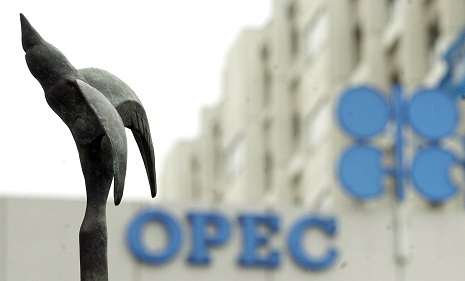“The Cartel’s current strategy of tolerating price falls to protect market share over the longer term appears to be working. Indeed, prices have started to recover. OPEC’s most powerful member, Saudi Arabia, has also signalled it is relatively happy with the current situation,” Pugh said in a report obtained by Trend.
Analyst mentioned that oil prices have begun to recover and he expects them to continue to do so, even in the absence of cuts in OPEC output. This should ease some of the pressure on member countries’ budgets, Pugh believes.
“However, even if prices do fall back, and an extraordinary meeting is called, there is unlikely to be any change in policy, Pugh said. This is especially the case as there are signs that lower prices are having the effect of forcing out higher cost producers”.
Earlier this week Nigeria’s oil minister and the current president of OPEC, Diezani Alison-Madueke, said further price volatility would make it highly likely she would call an emergency meeting in the next six weeks.
Analyst said that oil prices have rebounded from their December lows much more quickly than most people expected and the number of rigs drilling for oil in the US has fallen by a third since oil prices began to fall in June.
“Even though US production is still rising it is only a matter of time before it levels off or even begins to fall. Any cut in OPEC’s production would simply serve to ease the pressure on US shale producers and allow output there to continue to increase,” Pugh said.
One situation which could be grounds for an extraordinary meeting would be if there was a deal between Iran and the US which allowed Tehran to begin exporting large volumes of oil again, Pugh believes.
“OPEC is already producing more than its quota of 30 million barrels per day. Any resurgence in Iranian exports would require either a raising of the production target or reductions in output from other members, most likely Saudi Arabia, but any sort of agreement is unlikely to come easily,” Pugh said.
“Of course, the cartel can call an extraordinary meeting at any time if it feels that prices have fallen too far. But it is not clear that the outcome of any such meeting, before the next scheduled event in June, would be very different to the previous one,” he added.
Total OPEC crude oil production in January averaged 30.15 million barrels per day, a decrease of 53,000 barrels per day over the previous month, according to OPEC’s latest Oil Market Report.
OPEC members held a meeting in ministerial level November 27, 2014 to evaluate the global oil market and the falling trend of the oil price. Iran and Venezuela wanted to lower the Cartel`s oil output and set a new ceiling level below the current 30 mbpd level.
OPEC says that the demand for the organization’s crude is estimated at 29.1 mbpd in 2014. In 2015, the figure is estimated to reach 28.8 mbpd.
OPEC is scheduled to meet next in Vienna in June.
During electronic trading on the New York Mercantile Exchange on February 26, the West Texas Intermediate (WTI) for April 15 delivery increased by $1.04 to $49.21 a barrel.
Brent crude (which is the benchmark price for products in Europe and Asia) for April 15 delivery increased by $1.17 to $61.22 a barrel on the London-based ICE Futures Europe exchange.
More about:
















































